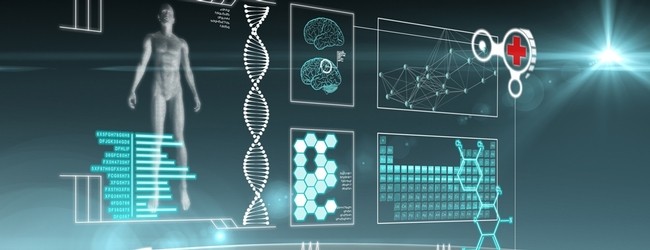Perthblog
Is blockchain primarily a medical breakthrough?

Now we know that blockchain is revolutionizing not just digital currencies but also accounting and increasingly other areas of finance. So blockchain is fundamentally a financial technology right? I’m not so sure.
Check out my Sanctus Sanctorum, Wikipedia, and it will tell you that blockchain is a distributed ledger. As such it can give you a break-in-proof record and thus a safeguard against errors, fraud and systemic replicating problems.
It’s definitely a neat idea. BTW for those not in the know, blockchain is just one of a whole category of distributed ledgers of which it happens to be most famous. But if you want to get some brownie points with the digerati when they talk blockchain, ask them if they really mean blockchain or the generic distributed ledger methodology. It will get you really unpopular very quickly.
So what is a ledger anyway? It’s just a list of numbers. They could be accounting and financial numbers. But you could have a ledger displaying the total numbers of spotted brown cows in the US by county. Or the number of exoplanets categorized by type of
star they orbit. And so on. In other words, accounting and financial purposes are not the only potential uses of blockchain and it’s quite possible they are not even the most important.
Here’s one potential use that occurred to me. A list of ID numbers categorized by location within a country (say be city, country or so on). You could extend this list by migration between the different areas so that the ledger shows for any given ID number where the holder moved. That would give us the ability for the first time to get a precise picture of where and how people are moving so that the numbers actually add up, which they don’t with US Census data. A useful piece of data to have in the current debate on immigration.
So that got me to thinking further. It’s notoriously difficult to build up a precise map of family lineages. Databases in ancestry websites are helpful but there’s nowhere you can go which would show you the precise biological relationships between any of the population who have national IDs (e.g. social security numbers) or not.
And that’s a major problem for medical researchers who need such a database so that they can link family lineages to particular genes and sets of DNA that are linked to specific diseases or other medical conditions, e.g. Alzheimer’s or cancer.
In other words you could blockchain ID numbers categorized by family relationships, and then link that ledger to the DNA of the holders, or to specific biomarkers. That would allow researchers for the first time to correlate the millions of genotypes of particular family lineages to medical outcomes for specific disease targets.
Now you might think that’s fanciful. But many of you would be aware of numerous global efforts worldwide to do that with current inadequate statistical methods. One of the efforts is to follow Icelandic families for certain disease correlations.
The Icelandic population is used since its small and there has been relatively little outbreeding so it helps address the thorny statistical problems of getting reliable correlations between family and medical outcome. Another such study is one that links an extended Colombian family with abnormal incidence of Alzheimer’s to particular genotypes.
There are many such studies. They are all dogged by the same problem; you can’t be sure what the exact family relationship is, and therefore you can’t be sure of how the genotype
linked with certain medical outcomes came to get there in the first place.
Medical research is now in the invidious position of having 21st century medical tools in the form of advanced biotech and genetic modelling, and 21st century computational approaches but analyzing the results using 19th century statistical methods.
It’s not much use if the medical researchers do all this amazing research but they are let down by data approaches that are still prone to massive and systematic errors in how they link the data together. The problem is that statistical approaches will generally not achieve the precision that is needed to link often incredibly rare genotype combinations with certain medical outcomes in situations where the researchers can’t be sure exactly who is related to who and the direction of transmission of the genotypes involved.
In other words, it might be that the greatest benefit we can obtain from blockchain is not its impact in improving auditability and reducing errors and fraud but in pushing the frontiers of medical research a quantum leap into the future.
That’s not to deprecate the impact of distributed ledgers on the financial and accounting world. But we need to recognize that blockchain is not just about finance, it’s about new data approaches to make sense of our world. Medical is one big area; there will be numerous others as researchers gradually get the idea.
I thought I was the first to figure out this idea, but no, someone else had thought of something similar first. Not a new idea under the sun, again it seems.
In the meantime we have to acknowledge that blockchain has its dangers, not least the threat to individual liberties and of governmental over-reach. While that’s true, the potential medical and other benefits are so vast and compelling that it’s impossible to contemplate not extending blockchain to these new epistemological territories.
Blockchain for heightened aesthetic appreciation maybe?
When you subscribe to the blog, we will send you an e-mail when there are new updates on the site so you wouldn't miss them.
